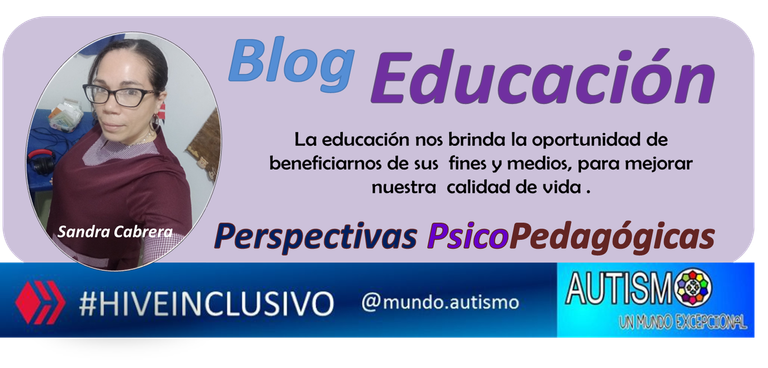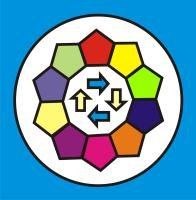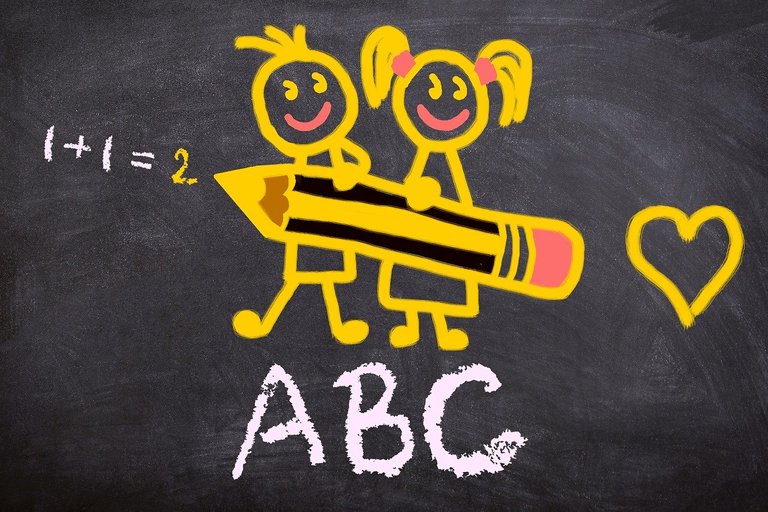Sabemos que la educación es imprescindible para todos los seres humanos. El proceso educativo no sólo es responsabilidad de la escuela; también lo es de la familia y de los entes corresponsables. Tanto la educación pública como la privada se rigen por las leyes nacionales (constitución, reglamentos, resoluciones y ordenanzas) y los convenios y tratados de organismos y organizaciones internacionales (Organización de las Naciones Unidas, Onu; Organización de las Naciones Unidas para la Educación, la Ciencia y la Cultura, Unesco; Banco Mundial, Banco Interamericano de Desarrollo, Bid ). Las funciones de todas estas organizaciones, son vinculantes con los niveles de la calidad educativa del país.
La educación, como eje transversal en el desarrollo de los niños, como derecho humano y deber social, es un hecho fundamental para construir progreso, desde lo personal hacia lo comunitario y lo social. De esta forma, la escolarización para los niños es inherente a su condición de aprendiz natural, por cuanto es la etapa donde se sientan las bases fundacionales de procesos que servirán de anclaje a la construcción de competencias más complejas, tanto a nivel motor, cognitivo, emocional, social y de lenguaje.
Los niños que se desarrollan con alguna condición especial en su desarrollo, necesitan de apoyos en su proceso de aprendizaje, por cuanto su educación debe estar dirigida principalmente a compensar las debilidades, apoyando sus fortalezas, para que su prosecución educativa sea exitosa. De esta forma, sostener parte su autoestima sobre los pilares que brinda la escuela, los cuales para el niño son muy importantes, ya que los mismos conforman parte de los espacios más importantes de socialización no familiar.
Para los niños autistas, además ganar competencias a nivel de socialización, el logro de las competencias escolares hace que se vean a sí mismos capaces de participar y ser tomados en cuenta.
…la escuela juega un papel importante en el desarrollo cognitivo y social de los autistas, pues tiene el deber de integrar a todos los niños(as) independientemente de sus características personales, para así crear un ambiente propicio para apoyar y dar respuesta a las necesidades de ellos. Así lo establece la Ley Orgánica de Educación, LOE (2009): en cuyo artículo 6 literal c contempla garantizar el acceso al Sistema Educativo a las personas con necesidades educativas o con discapacidad, mediante la creación de condiciones y oportunidades.
Trastornos del Espectro Autista en Educación Inicial: Experiencia Educativa
Sabemos que las limitaciones en las relaciones sociales constituyen uno de los indicadores fundamentales en el espectro autista. En compensación, los niños tratan de sumar puntos a su favor mediante la valoración positiva de su conocimiento y, en general, de su inteligencia, para abrirse paso en el currículum escolar.
De hecho, ser bueno en los estudios garantiza un aval para que el niño autista acuda al centro escolar con entusiasmo, mientras se abre paso en la difícil tarea de establecer relaciones de amistad con sus compañeros, a través de significados complejos, al menos inicialmente fuera de personas cercanas y familiares, como el afecto, el acompañamiento, la cooperación… La escuela es un lugar muy complejo para el niño autista, porque en ella convergen dinámicas que exigen recursos mentales (teoría de la mente) para manejar y apropiarse de componentes críticos con un alto nivel de abstracción.
Por consiguiente, es muy importante que los niños autistas estén escolarizados y que cumplan con una asistencia regular. Igualmente, el apoyo que reciba del hogar y de los servicios de apoyo es muy importante, dada la trascendencia y la repercusión en su desarrollo integral. Sabemos que los servicios y terapias de apoyo son fundamentales; pero la educación regular también lo es. Este medio garantiza un correlato social inclusivo indispensable.
Desde los hogares de cuidado diario, los maternales, los preescolares y la escuela primaria, conforman un nicho donde los niños autistas pueden desarrollar competencias, no sólo personales; sino para la vida. De allí que no es recomendable que estén sin escolarización. Bien sea en la modalidad de educación especial o en el sistema de educación regular, es como se indicó anteriormente, un derecho…y la oportunidad de abrirse paso como personas, como seres humanos y como ciudadanos.

Soy Sandra Cabrera, licenciada en Dificultades para el Aprendizaje, con estudios de postgrado en Educación Especial Integral, Planificación Educativa y Literatura Infantil. Si te interesan los temas sobre educación especial, la discapacidad y las condiciones especiales del desarrollo, puedes contactarme a través de los números 04128032993 y 0412 8333334 y en:
El canal de Telegram, Trastornos del Aprendizaje.
En las redes sociales Instagram y Facebook1 y Facebook2. Sandra Cabrera Psicopedagoga.
En la cuenta de spreaker, @sandracabrerapodcast.
Acompáñanos, suscribiéndote a Mundo Autismo

Y sé parte de un mundo excepcional, donde tendrás la oportunidad de informarte e interactuar.
Nos encuentras en:
X


Apoya a @aliento como Testigo

Fuentes de las imágenes:
Logo propiedad de la comunidad @mundo.autismo
Logo propiedad de la Comunidad @aliento
Logo X, editado en PowerPoint, Pixabay
Logo Facebook editado en PowerPoint, Pixabay
Ahora voy a realizar la traducción con Google.
_______________________We know that education is essential for all human beings. The educational process is not only the responsibility of the school; it is also the responsibility of the family and the co-responsible entities. Both public and private education are governed by national laws (constitution, regulations, resolutions and ordinances) and the conventions and treaties of international organizations and agencies (United Nations Organization, UN; United Nations Educational, Scientific and Cultural Organization, UNESCO; World Bank, Inter-American Development Bank, IDB ). The functions of all these organizations are binding on the country's educational quality levels.
Education, as a cross-cutting axis in the development of children, as a human right and a social duty, is a fundamental fact to build progress, from the personal to the community and the social. In this way, schooling for children is inherent to their condition as natural learners, since it is the stage where the foundational bases of processes that will serve as an anchor for the construction of more complex skills are laid, both at the motor, cognitive, emotional, social and language levels.
Children who develop with some special condition in their development, need support in their learning process, since their education must be directed mainly to compensate for weaknesses, supporting their strengths, so that their educational continuation is successful. In this way, part of their self-esteem is sustained on the pillars provided by the school, which are very important for the child, since they are part of the most important spaces for non-family socialization.
For autistic children, in addition to gaining competencies at the level of socialization, the achievement of school competencies makes them see themselves as capable of participating and being taken into account.
…the school plays an important role in the cognitive and social development of autistic children, since it has the duty to integrate all children regardless of their personal characteristics, in order to create an environment conducive to supporting and responding to their needs. This is established by the Organic Law of Education, LOE (2009): in whose article 6, letter c, it contemplates guaranteeing access to the Educational System to people with educational needs or with disabilities, through the creation of conditions and opportunities.
Autism Spectrum Disorders in Early Childhood Education: Educational Experience
We know that limitations in social relationships constitute one of the fundamental indicators in the autistic spectrum. In compensation, children try to score points in their favor by positively assessing their knowledge and, in general, their intelligence, to make their way through the school curriculum.
In fact, being good at studying guarantees an endorsement for the autistic child to go to school with enthusiasm, while making their way through the difficult task of establishing friendships with their peers, through complex meanings, at least initially outside of close and familiar people, such as affection, accompaniment, cooperation... School is a very complex place for the autistic child, because dynamics converge in it that demand mental resources (theory of mind) to manage and appropriate critical components with a high level of abstraction.
Therefore, it is very important that autistic children are in school and that they attend regularly. Likewise, the support they receive from home and support services is very important, given the significance and impact on their comprehensive development. We know that support services and therapies are essential; but regular education is also essential. This means guarantees an indispensable inclusive social correlation.
From day care homes, daycare centers, preschools and primary school, they form a niche where autistic children can develop skills, not only personal; but for life. Therefore, it is not recommended that they be without schooling. Whether in the special education modality or in the regular education system, it is, as indicated above, a right... and the opportunity to make their way as people, as human beings and as citizens.

I am Sandra Cabrera, a graduate in Learning Difficulties, with postgraduate studies in Comprehensive Special Education, Educational Planning and Children's Literature. If you are interested in topics related to special education, disability and special developmental conditions, you can contact me at 04128032993 and 0412 8333334 and at:
The Telegram channel, Learning Disorders.
On social media Instagram and Facebook1 and Facebook2. Sandra Cabrera Psychopedagogue.
On the spreaker account, @sandracabrerapodcast.
Join us by subscribing to Mundo Autismo

And be part of an exceptional world, where you will have the opportunity to learn and interact.
You can find us at:
X


Support @aliento as a Witness

Image sources:
Logo owned by the community @autismo
Logo owned by the @aliento Community
X logo, edited in PowerPoint, Pixabay
Facebook logo edited in PowerPoint, Pixabay
Now I'm going to translate it with Google.




Es una lucha fuerte lograr la escolarización pues es complicado para ellos, pero cada día se avanza más.
Excelentepost, @sandracabrera
Por eso valoro todos los esfuerzos que sé que personas conscientes están haciendo.Gracias, @emiliorios.
Congratulations @sandracabrera! You have completed the following achievement on the Hive blockchain And have been rewarded with New badge(s)
Your next target is to reach 6000 comments.
You can view your badges on your board and compare yourself to others in the Ranking
If you no longer want to receive notifications, reply to this comment with the word
STOPEl trabajo conjunto de la familia, especialistas y la escuela son fundamentales para que el niño se motive con las actividades escolares.
Saludos! 💙💙
Eso es correcto. Y es un aprendizaje que es necesario que se comprenda.
Gracias por comentar.
Saludos, @belkyscabrera, que tengas un excelente día.